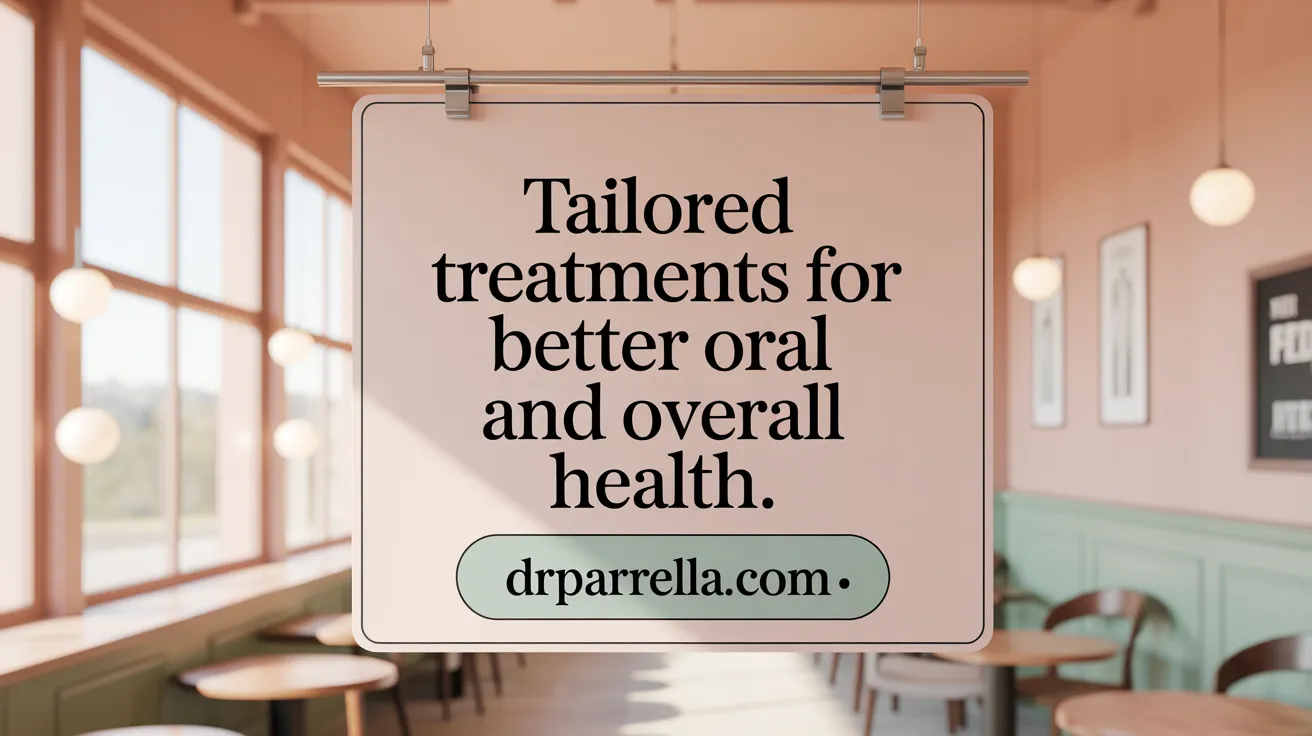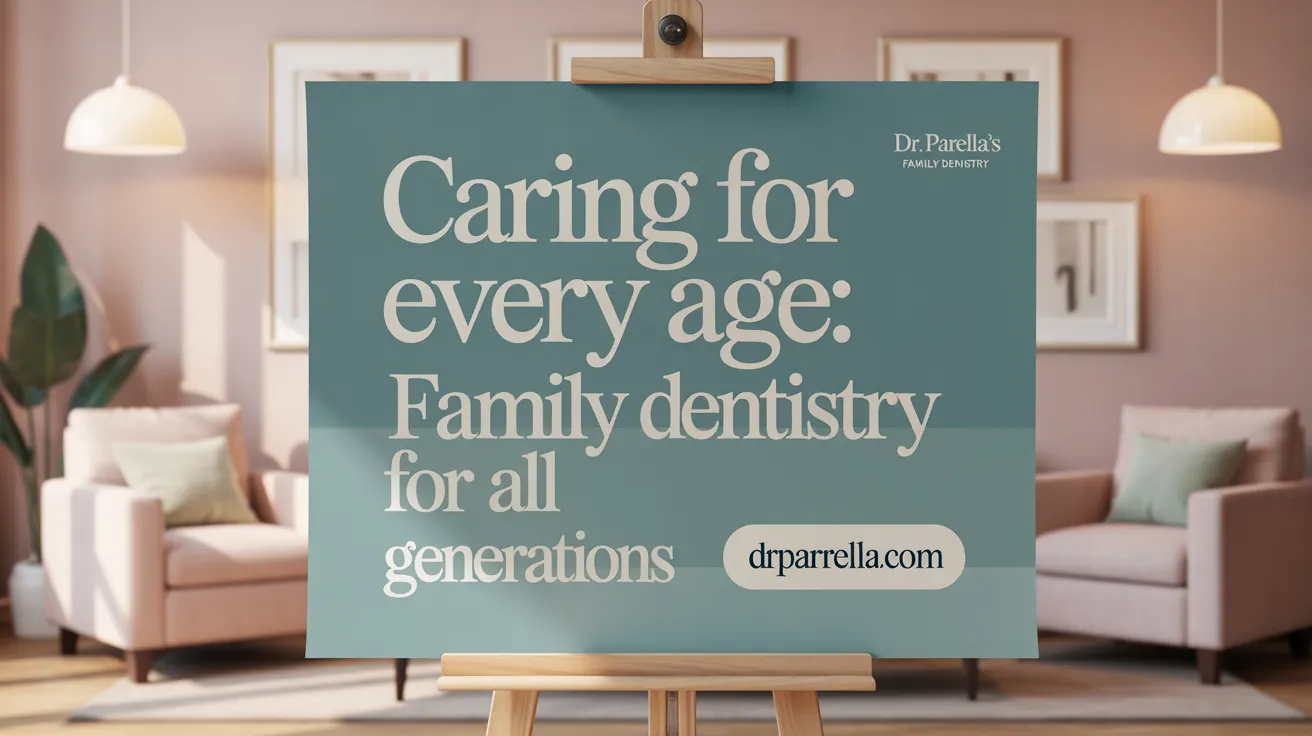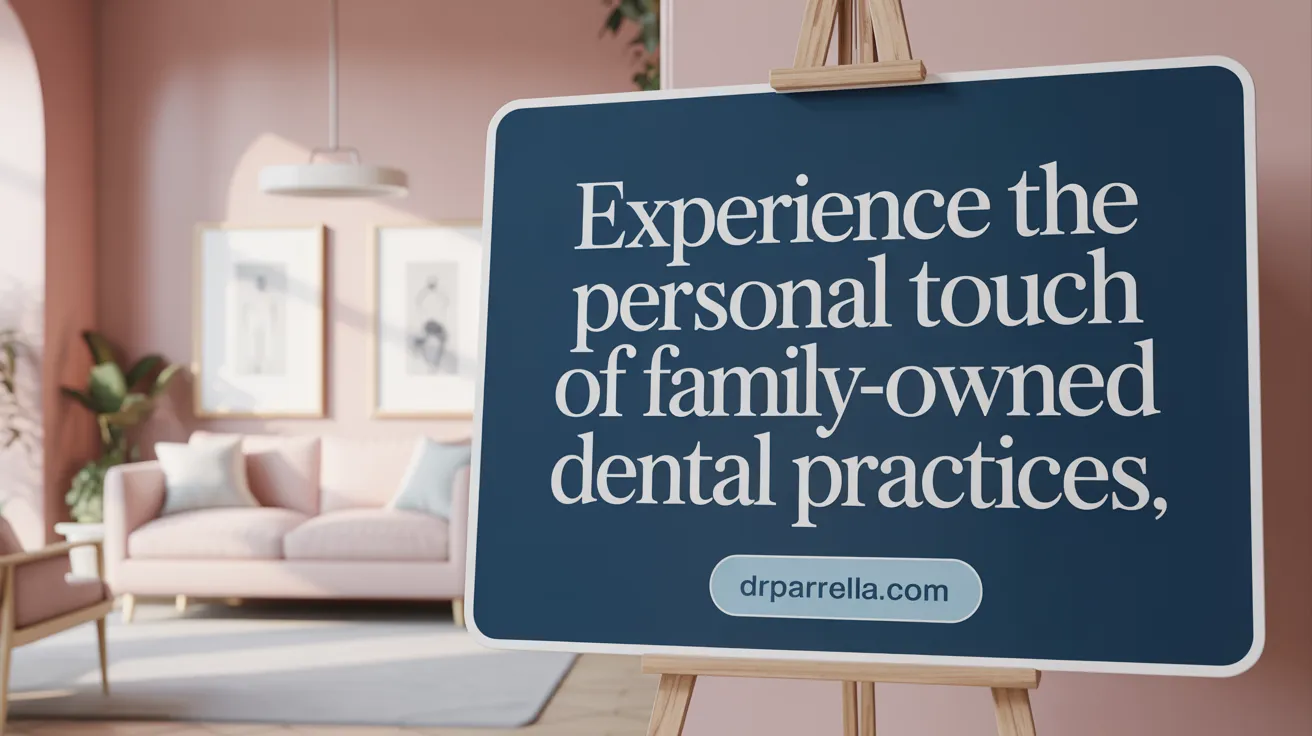The Essence of Personalization in Family Dental Care
In the realm of family dentistry, personalized dental care stands as a pivotal approach that caters to the unique needs, histories, and aspirations of each individual within a family. Far beyond routine checkups, this method ensures treatments are carefully adjusted to improve oral health outcomes, foster trust, and enhance patient comfort. By embracing personalized care, family practices transform dental visits into comprehensive health experiences, ultimately benefiting entire families across generations.
The Foundation: Continuity and Customization in Family Dentistry

Why is it important for a family dentist to know the dental history of each family member?
A family dentist familiar with dental history can craft treatment plans that cater to individual needs. This familiarity allows the dentist to conduct ongoing assessments essential for early detection of dental issues, like cavities or gum disease. Managing previous dental work such as fillings or crowns is smoother when the provider understands each patient's unique dental background. Moreover, understanding hereditary dental risks such as tendencies toward tooth decay or gum disease, supports targeted preventive dental care for families to protect long-term oral health.
How does continuity of care benefit families in dental practices?
Continuity of care in family dentistry builds stronger patient-provider relationships, improving communication and patient comfort. Having one dentist for the entire family simplifies scheduling, making it convenient to coordinate appointments for different age groups. This consistent care approach enhances adherence to preventive practices and fosters a comprehensive, cohesive family oral health approach that benefits every family member. It also ensures that treatments are managed effectively over time, contributing to better overall dental outcomes.
The convenience and benefits of family dental care
Family dental practices provide a one-stop solution for comprehensive dental care for families. Knowing the family’s collective dental history allows the dentist to anticipate and address issues early while tailoring care. The simplicity of visiting a single dental office promotes regular checkups, ensures personalized dental care is delivered to all ages, and maintains a proactive approach to managing hereditary dental risks and preventive care.
By partnering with a familiar and consistent dental provider, families benefit from personalized dental care from a family dentist that consider individual histories alongside overall family health, leading to improved oral health and greater peace of mind.
The Power of Personalized Dental Treatment Plans

What factors are considered in personalized dental care?
Personalized dental care takes into account a range of individual factors including genetics and dental health, lifestyle habits, health history, age, medical conditions, and stress levels. This thorough understanding helps dentists customize treatments specifically for each patient. By considering these elements, dentists can offer preventive measures and restorative care that are finely tuned to a patient’s unique needs, leading to better comfort and improved aesthetics alongside long-lasting oral health.
How does technology enhance personalized dental care?
Advanced technologies play a crucial role in the success of personalized dental treatment plans. Tools like digital imaging (CBCT technology) provide precise diagnostic images, while CAD/CAM systems allow the creation of custom restorations such as crowns and veneers with remarkable accuracy. Tele-dentistry adds a layer of convenience by facilitating remote consultations and follow-ups. These innovations ensure that patients receive precise, efficient, and accessible care tailored to their dental condition.
What are the benefits of collaborative decision-making with patients?
Collaborative treatment planning places patients at the center of their dental care. By involving patients in discussions about treatment options and aligning plans with their preferences and lifestyle, dentists foster trust and adherence to recommended care. This approach not only improves satisfaction but also encourages ongoing engagement in maintaining oral health.
How do personalized treatment plans impact comfort, aesthetics, and health outcomes?
Customized treatments improve patient comfort by addressing specific concerns and minimizing anxiety through predictable procedures. Aesthetic outcomes benefit from tailored dental restorations designed to match individual preferences and natural appearance. Moreover, by targeting each patient’s unique risk factors, personalized care promotes superior long-term oral health and reduces the likelihood of complex dental issues.
What long-term benefits do personalized dental care plans provide?
Investing in personalized dental treatment plans leads to early problem detection and more effective preventative care, ultimately reducing emergency visits and costly procedures. These plans support maintaining natural teeth longer, enhance overall health by managing oral-systemic connections, and boost patients' confidence and quality of life.
| Topic | Details | Examples/Technology |
|---|---|---|
| Customized Factors | Genetics, lifestyle, health history, age, medical conditions, stress | Personal risk assessment |
| Advanced Technology | Digital imaging (CBCT), CAD/CAM restorations, tele-dentistry | Same-day crowns, remote consults |
| Patient Collaboration | Informed treatment decisions, aligning care with preferences | Treatment planning discussions |
| Outcomes | Enhanced comfort, aesthetics, prevention of dental disease | Custom veneers, fluoride treatments |
| Long-Term Benefits | Early detection, reduced costs, improved oral/systemic health, increased satisfaction | Personalized maintenance programs |
Comprehensive and Inclusive Care Across Life Stages

How does family dentistry support patients of all ages?
Family dentistry offers a centralized location where children, adults, and seniors receive comprehensive oral care. This approach ensures convenience and promotes continuity of care across generations. Preventive treatments, such as regular cleanings, fluoride applications, and dental sealants, are fundamental services that help reduce cavities and gum disease risks. Pediatric dentistry focuses on monitoring dental development and teaching young patients proper oral hygiene techniques. Adult and senior dental care covers a broad spectrum—including restorative procedures like fillings and crowns, cosmetic options such as teeth whitening, and urgent care for dental emergencies.
Why is establishing a positive dental experience early important?
Building familiarity with a family dentist from childhood helps reduce dental anxiety by making visits more predictable and comfortable (reducing dental anxiety in children). Positive early experiences encourage children to develop and maintain good oral hygiene habits (educational dental habits for children). Over time, these supportive relationships foster trust and make ongoing preventive care easier to follow, resulting in healthier smiles and more confident attitudes about dental health throughout life (strong patient-provider relationships).
Preventive care and emergency management
Consistent dental check-ups with a family dentist allow for early detection and treatment of issues, preventing complex problems later. In the case of dental emergencies such as toothaches or injuries, family dentists provide prompt and effective care, rapidly addressing problems to minimize discomfort and avoid progression.
In summary, family dentistry’s inclusive approach to serving all age groups supports lifelong oral health by offering tailored preventive care, managing emergencies, and building positive habits from early childhood through senior years.
The Interplay Between Personalized Dental Care and Overall Health

How does personalized dental care impact overall health?
Personalized dental care plays a crucial role in improving overall health by addressing unique patient risk factors that contribute to both oral and systemic diseases. Conditions such as heart disease and oral health , diabetes, and respiratory illnesses often have links to poor oral health. Tailored dental treatments help reduce harmful oral bacteria and inflammation, which can otherwise exacerbate these systemic issues. This approach emphasizes early detection and customized prevention strategies, which support better long-term health outcomes beyond just dental well-being.
What is the role of collaboration between dental professionals and medical providers?
Effective collaboration between dental and medical practitioners is vital for comprehensive health management. By working together, providers can enhance early diagnosis and treatment of oral health issues, which often act as indicators for broader systemic conditions. Despite challenges like low referral rates and knowledge gaps, integrating dental hygienists into patient care teams and utilizing shared electronic health records can significantly improve communication and coordination. Interprofessional education further bridges gaps, ensuring both dental and medical professionals understand each other's roles and patient needs.
Why is early detection important in prevention?
Early identification of oral health problems through personalized care programs allows for timely interventions that prevent progression to more severe conditions. Such detection methods enable dentists to tailor treatments specifically to individuals’ needs based on genetic, lifestyle, and clinical data. Preventive measures like fluoride treatments or deep cleanings are more effectively applied when risks are identified early, reducing the chances of developing serious dental or systemic diseases.
How does medical-dental collaboration impact chronic disease management?
Oral health management is a key factor in controlling chronic diseases. For example, reducing oral bacterial load can decrease the risk of aspiration pneumonia, especially postoperatively. Integrated care models involving dentists, medical practitioners, and dental hygienists improve swallowing function, nutritional status, and overall recovery in patients with chronic conditions. This multidisciplinary approach enhances prevention, treatment efficacy, and patient quality of life as described in medical-dental collaboration studies.
What are the benefits of targeted preventive care?
Targeted preventive care within personalized dentistry focuses on individualized risk assessments, enabling customized treatment schedules and interventions. This reduces unnecessary procedures while effectively managing disease progression. Key benefits include fewer emergency visits, improved patient comfort, cost savings over time, and sustained natural teeth retention. By emphasizing prevention tailored to each patient's unique factors, personalized care contributes to both oral and systemic health maintenance.
Why Choosing a Family-Owned Dental Practice Enhances Personalized Care

What distinguishes family-owned dental practices in delivering personalized care?
Family-owned dental practices stand out by creating deeply personal relationships with their patients. They take the time to learn about each individual’s hobbies, dental history, and preferences, enabling highly tailored dental treatment plans. A welcoming and comforting environment, especially designed for children, helps reduce anxiety and encourages lifelong healthy dental habits. Their active participation in community events and local support builds strong trust and loyalty among families, fostering trust-building in community dental care.
How does family-owned dental care benefit families practically?
Providing comprehensive dental services for all ages for all family members in a single location greatly simplifies scheduling and reduces stress. Patients consistently seeing familiar staff experience better communication and continuity of care, leading to improved long-term oral health. Additionally, family-owned practices often utilize the latest dental technology and allergen-friendly materials, enhancing treatment comfort and safety for everyone.
In summary, family-owned dental practices combine personalized attention, community engagement, and modern technology to offer families an accessible, trustworthy, and comprehensive dental care experience that adapts to their unique needs over time.
Personalized Care: The Heart of Effective Family Dentistry
The integration of personalized dental care within family practices is essential for delivering comprehensive, effective, and compassionate oral health services that adapt to each patient’s unique history, needs, and goals. From embracing advanced technology and fostering lifelong relationships to addressing hereditary risks and systemic health connections, personalized approaches optimize outcomes and enhance patient comfort across life stages. Family-owned practices, with their commitment to individualized care and community trust, further exemplify the profound benefits of personalization. Ultimately, choosing a family dentist who prioritizes personalized care ensures healthier smiles and stronger overall well-being for every member of the family.
